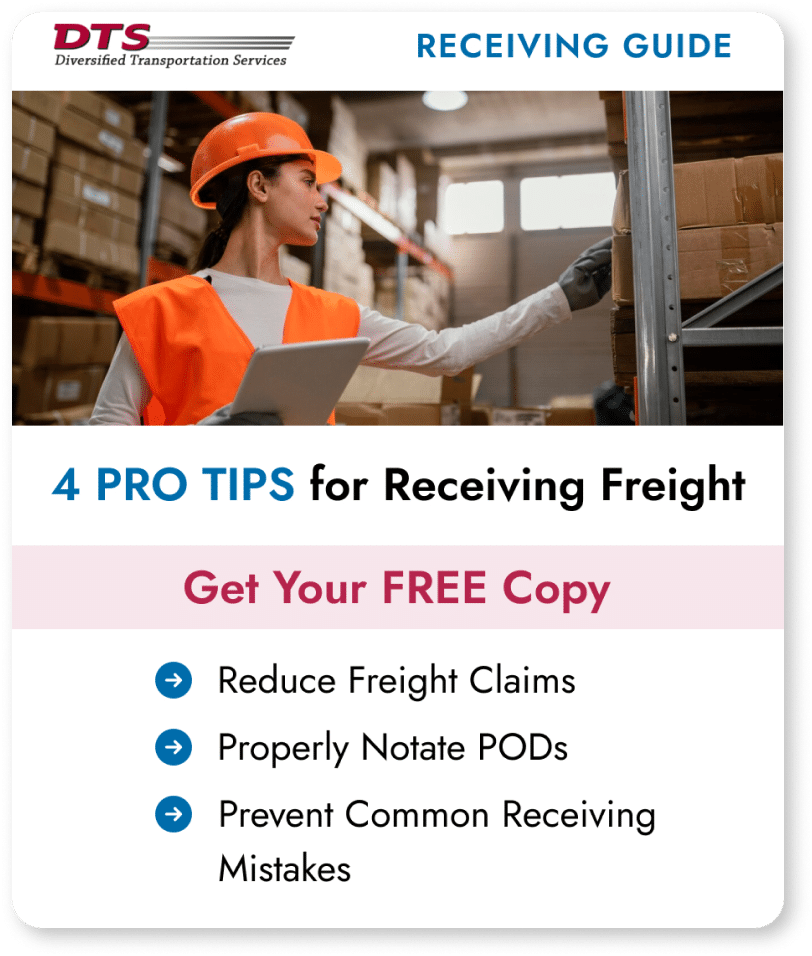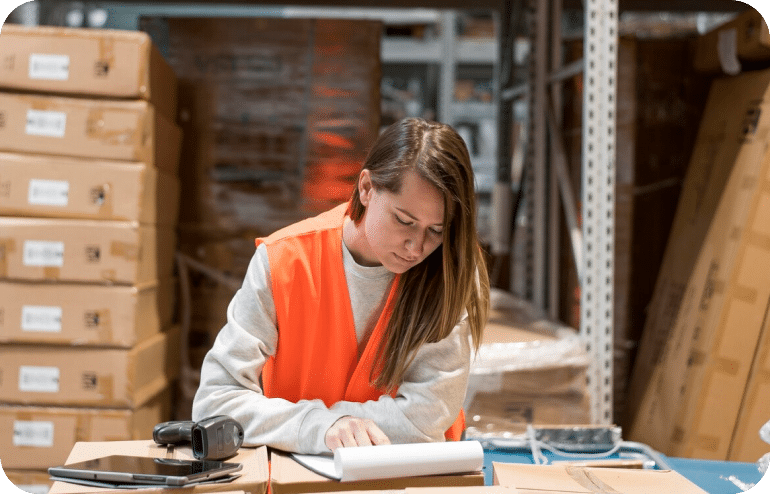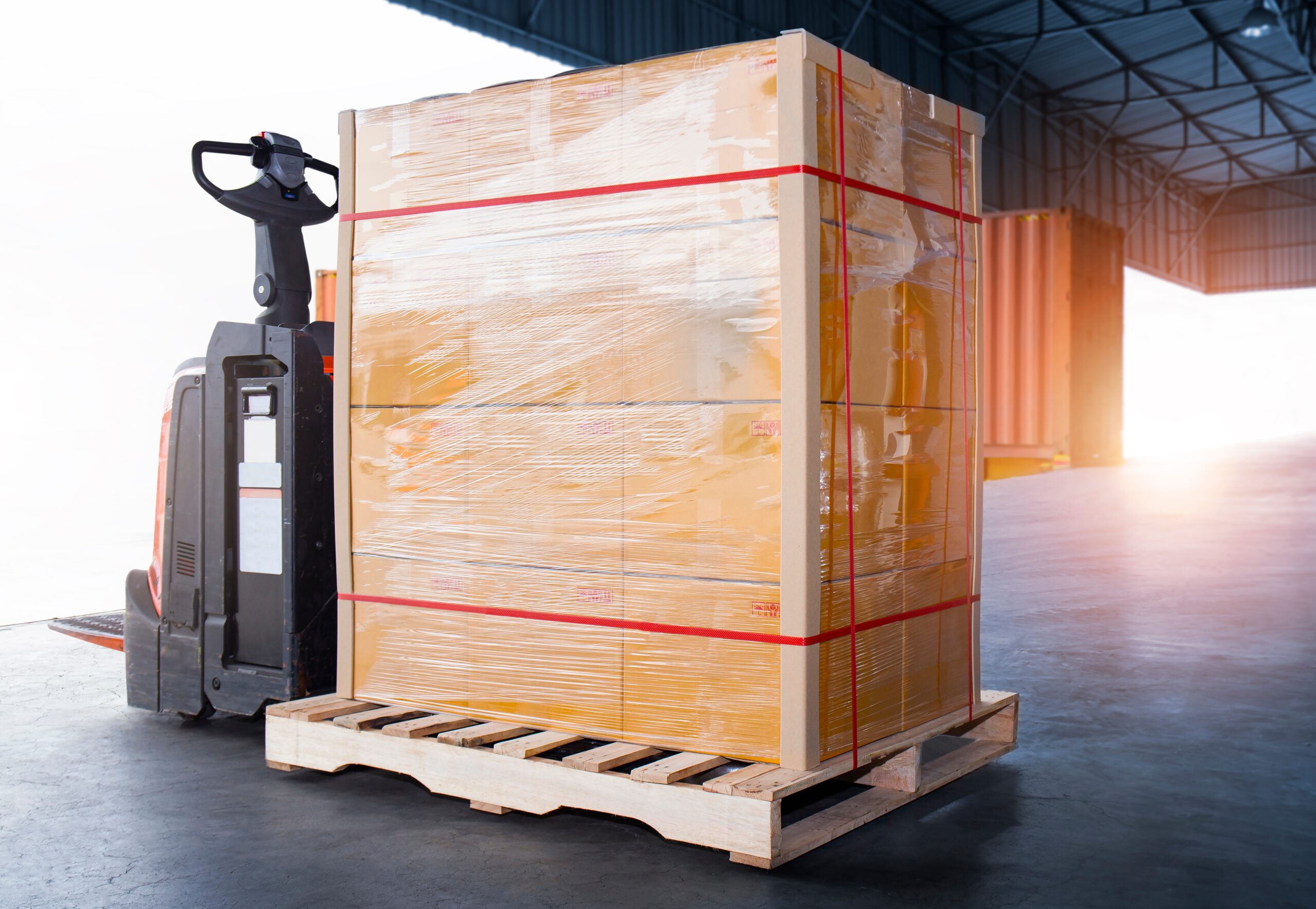Affordable LTL shipping rates and dedicated service tailored to your business.



We get it. Poor LTL freight service from your LTL freight partner isn’t just frustrating—it’s disrupting your operations and putting your client relationships at risk.
You deserve an LTL partner who offers clear communication, reliable support, and proactive solutions, and that’s exactly what we’re here to deliver.







We use DTS daily through out our company. Their team is always great with service and arranging our many different shipments. They offer advice on tricky situations and offer a range of services that our business needs.
For LTL shipping, carriers consolidate freight from multiple shippers into a single truck. The amount of space required by each shipper can vary.
Unlike FTL shipping, where goods travel directly from pick-up to destination, LTL shipments make multiple stops. Drivers stop multiple times to collect other shipments and make deliveries.
Shipments are also often transferred between trucks at distribution hubs, switching between drivers until they arrive at their final destination. Multiple stops along the way can lead to longer delivery times than FTL shipping but with the cost-savings of not paying for an entire truck.
The typical LTL shipment size is 150 to 15,000 pounds or 1 to 6 pallets. Shipments smaller than 150 pounds usually qualify for parcel shipping (e.g through FedEx and UPS), which may be a more affordable and convenient option.
Just like other shipping methods, LTL shipping has some advantages and disadvantages:
LTL transportation rates are based on freight class, a standardized industry pricing system. National Motor Freight Classification (NMFC) codes determine freight class and associated rates. Freight class is based on the density, stowability, handling, and liability of a shipment.
Other factors can determine the cost of LTL shipping. For example, the distance traveled and fuel surcharges may increase the price.
Carriers add accessorial charges to LTL rates to cover services beyond the standard pickup and delivery of shipments. Adding accessorial charges to their shipping rates can help carriers recoup any losses that might arise from unexpected delays.
Accessorial charges are more common in LTL than FTL transportation because LTL involves multiple deliveries, increasing potential delays along the route. Because FTL shipping transports goods for just one shipper, delays are less likely (though still possible).
Common LTL accessorial charges include:
There are two main types of LTL service: guaranteed and non-guaranteed (or regular). Each option has its own benefits.
Guaranteed LTL shipping ensures that a shipment will reach its destination by a fixed date and time. That’s a major advantage if a client wants to know exactly when they’ll receive a delivery and you want to provide them with a smooth experience.
Goods are usually guaranteed to arrive by 5 pm or noon on the specified date. Guaranteed LTL shipping provides more stability and certainty than you’ll have with an estimated delivery window. If anything goes wrong and the shipment fails to arrive as stated, the carrier should provide compensation.
However, guaranteed shipping is more expensive than regular LTL service. The higher cost may be worth it to impress a new client or keep existing ones happy.
Here are the three main points to keep in mind with guaranteed LTL:
The non-guaranteed option is less predictable and allows room for delays. A carrier will give you an estimate of the arrival time, but there’s no certainty. Clients may need to wait one or more days longer than they expect, though there’s still a chance the delivery will be on time. Due to this uncertainty in delivery time, non-guaranteed LTL shipping is less expensive.
Here are the three main points to consider with regular LTL service:
When you choose a carrier to transport freight on your behalf, you want to feel reassured that your freight will be in good hands every step of the way. However, even well-respected carriers experience issues from time to time. Shipments may arrive damaged or go missing altogether.
Fortunately, LTL shipping carriers generally provide basic liability coverage for goods in their possession. This covers damage or loss that may occur while in transit.
However, liability limits are often based on a shipment’s weight and freight class. Goods of a higher class usually require higher coverage.
However, carrier liability coverage isn’t the same as full cargo insurance: you may need additional insurance when sending high-value shipments. Though cargo insurance adds additional expenses to your shipments, it should still be more affordable than paying for replacement freight and subsequent deliveries out of pocket if something goes wrong.
Carrier liability coverage typically ranges from $0.50 to $25 per pound, though it depends on the carrier and shipment details. It’s important to discuss carrier liability with a carrier and verify the specific coverage terms to avoid surprises if you need to file a claim. Make sure you check liability coverage when comparing carriers to find the best deal for your budget and goals.

Having been in business for over 35 years, we’ve had countless conversations with shippers frustrated by freight providers who fail to prioritize their needs—missed updates, unanswered calls, and service that makes them feel like just another number in the system.
At Diversified Transportation Services, we partner with you to solve your shipping challenges, becoming an extension of your traffic department. Our goal is to leverage our decades of expertise to streamline your operations, allowing you to focus on what truly matters—running your business.
We’ve been refining our approach for over three decades, ensuring that even when challenges arise, you’ll always have a reliable partner by your side. Once you experience the level of service, support, and partnership we offer, you won’t want to return to freight providers who don’t value your business.


Exceptional! We've learned so much working with DTS over the years. Any company that is looking for solid logistics services should talk to DTS. Thank you Marc for everything you have done for us!
Thank you for considering us for your freight shipping needs. After you fill out this form, we will get in touch with you shortly regarding your inquiry. For any questions, please email us at marketing@dtsone.com or call (310) 521-1200.
